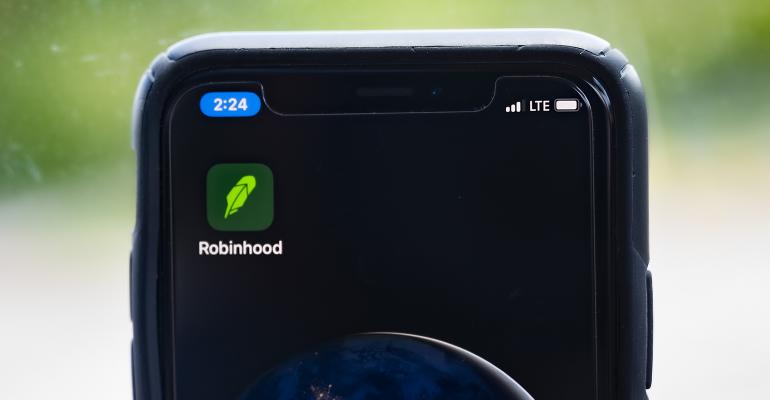(Bloomberg) -- Robinhood Markets drew millions of users to financial markets with a colorful app that makes trading seem empowering instead of intimidating.
That very appeal thrust it into the regulatory crosshairs yet again on Wednesday.
Massachusetts securities regulators filed a complaint against Robinhood Financial LLC, alleging the popular online brokerage aggressively marketed to novice investors and failed to put controls in place to protect them.
Robinhood exposed Massachusetts investors to “unnecessary trading risks” by “falling far short of the fiduciary standard” that requires broker-dealers to act in their clients’ best interest, according to a 23-page administrative complaint from the office of Secretary of the Commonwealth William Galvin.
It focuses on the tactics that Robinhood uses to keep consumers engaged, alleging that it encourages them to use the platform through what it calls “gamification.” Regulators say one Robinhood customer with no investment experience made more than 12,700 trades in just over six months.
“As a broker-dealer, Robinhood has a duty to protect its customers and their money,” Galvin said in a statement. “Treating this like a game and luring young and inexperienced customers to make more and more trades is not only unethical, but also falls far short of the standards we require in Massachusetts.”
‘Integrity, Transparency’
The company said it plans to cooperate with the regulator.
“Robinhood has opened up financial markets for a new generation of people who were previously excluded,” spokeswoman Nora Chan said in a statement. “We are committed to operating with integrity, transparency, and in compliance with all applicable laws and regulations.”
The Wall Street Journal reported on the allegations earlier Wednesday.
Robinhood, founded by Vlad Tenev and Baiju Bhatt, exploded in popularity this year amid a boom in retail trading. Equity indexes cratered in March as the world went into lockdown to contain the spread of Covid-19, only to bounce back. As self-guided investors tried to cash in on the chaos, Robinhood surpassed 13 million users, with 3 million of those signing up in the first four months of 2020 alone.
Tenev and Bhatt have said they’re on a mission to make investing available to all, while critics contend the app encourages users to experiment with financial instruments and risks they may not fully understand.
Growing Pains
“There is a legitimate concern about the impact gamification has on financial decisions,” said Charles Rotblut, vice president of the American Association of Individual Investors. “Speculating is not investing and is frequently very dangerous to one’s financial health.”
Technical trouble and growing pains have accompanied Robinhood’s blockbuster growth. In March, the firm was struck by a service disruption that lasted for more than a full trading day. Months later, a hacking attack spurred outrage from users. At one point in October, access to more than 10,000 email login credentials tied to Robinhood accounts were available on the dark web.
Read more: Robinhood’s Addictive App Made Trading a Pandemic Pastime (1)
Robinhood is already facing scrutiny from federal regulators. The Securities and Exchange Commission and the Financial Industry Regulatory Authority, which polices brokerages, are investigating the company’s handling of the March outages following a deluge of customer complaints that it was unresponsive to their concerns, Bloomberg reported in August.
The SEC is separately probing whether Robinhood properly informed brokerage clients that it sold their stock orders to high-frequency traders and other Wall Street firms. The investigation is focused on Robinhood’s disclosures prior to 2018, when it altered its website to make information easier for customers to find.
Finra fined Robinhood $1.25 million last December over how it routed customer orders. Known as payment for order flow, the controversial practice is employed by almost all retail brokerages and entails selling client trades to outside firms that execute them.
--With assistance from Sophie Alexander and Jesse Westbrook.





